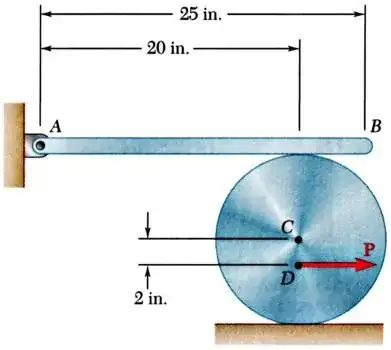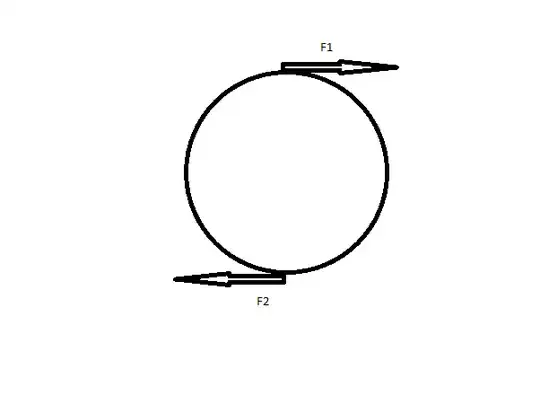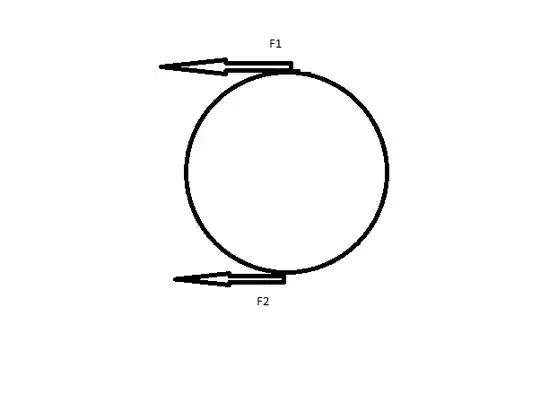I am currently taking an engineering course in statics and my teacher is insisting that an off-center force will NOT cause a free object to rotate. This goes completely against my intuition. Here is the problem we are working on:
My intuition tells me that if there were no supports that the cylinder would rotate, and therefore the friction forces on the FBD would look like this:
However, my teacher says that it would not spin if there were no supports, and therefore the friction forces would look like this:
I'm not really concerned about this particular problem, but the possibility that I have totally misunderstood this physics concept is very concerning to me. I have already looked on this forum for similar questions, and they all seem to say that a free object will rotate if a force is applied off-center to it. However, my statics professor is an very intelligent PhD, and I hesitate to disagree with her. Any help is very appreciated!


